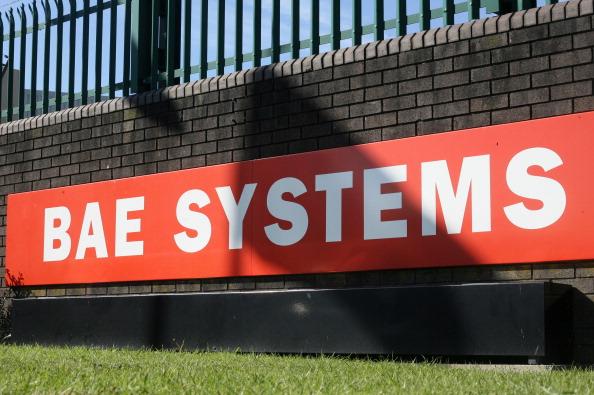
The BAE Systems logo is pictured at the BAE Systems site at Brough in East Yorkshire, England, on Sept. 27, 2011. Lindsey Parnaby/AFP/GettyImages
The United Kingdom’s largest defense firm experienced record orders as the Russia–Ukraine war boosted military spending in 2022.
Bryan S. Jung is a native and resident of New York City with a background in politics and the legal industry. He graduated from Binghamton University.
Author’s Selected Articles





